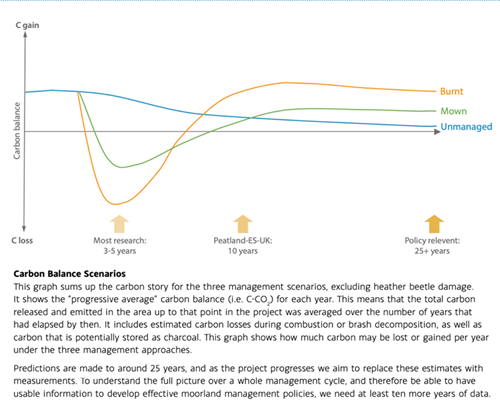By Owen Williams, GWCT Wales Chair
Driven by the dual reality of the climate and nature crisis, policy discussions on land management have rightly intensified over recent years. Triggered by the sight of burning on our managed uplands, but with little knowledge of the science, lobbyists and their public supporters pressure governments to ban prescribed burning. It is claimed that alternative cutting and rewetting are better options. However, exploration of the evidence shows us that what science we do have on long term carbon storage, greenhouse gas emissions, water storage and biodiversity on moorland under different management regimes is highly complex and there are considerable knowledge gaps. Especially around long-term impacts and wildfire risk.
Any policy maker with an eye to the past understands that the more gaps we have in our knowledge, the higher the risk is of unintended consequences if we rush to make policy decisions. That is why a number of our leading scientists with years of conducting key research into these ecosystems on our uplands are advising caution regarding the seemingly appealing solution of banning prescribed burning as a management tool for moorland owners. It might quite literally backfire!
They have established the Future Landscapes Forum, which sets out our current understanding of the complex science on prescribed burning and alternative management tools in their position statement. Their view is that future policy has to balance a number of complex needs, including the preservation of globally important open heather dominated uplands, enhancing their ecosystem function, including carbon capture, and the mitigation of increased wildfire risk. Unlike lobbyists, they have taken into consideration the wider practicalities of working collaboratively with moorland owners and addressing the very real social and economic needs of rural communities.
Given the complexity of this task, they are unanimous in their view that the removal of prescribed burning as an important management tool is a mistake. They point to recent research suggesting that prescribed burning when conducted properly can result in better carbon capture than either mowing, or leaving moorland to grow unmanaged.

Source: Heinemeyer et al 2023, as referred to in the FLF Position Statement.
Given that the outcomes for alternatives to prescribed burning such as mowing, rewetting and rewilding are largely untested, Future Landscapes Forum is calling for an open and honest debate based on the latest science before rushing to formulate policies. It is important to note that its recommendations are made regardless of grouse moor management. It also reminds policy makers that decisions must always be evidence-based and not driven by poorly informed public opinion, or the highly subjective opinions and ideologies of lobbyists.
The UK has some of the leading experts in this fields; it would be wrong for politicians to ignore their evidence-based views. The authors invite all interested parties to discuss the evidence and develop a consensual approach to management policy.
Contributors to FLF are:
- Dr Andreas Heinemeyer
- Dr Mark Ashby
- Prof. M. James. C Crabbe
- Prof. Simon Denny
- Prof. Rob Marrs
You can read more about Future Landscapes Forum here.